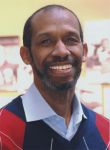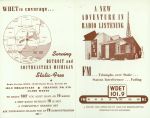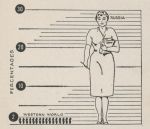teller's blog
Archivist Louis Jones Receives Award
On October 17 Reuther Library field archivist Dr. Louis Jones, CA, was recognized at the 16th Annual Wayne County Council for Arts, History and Humanities Recognition Awards. Jones received the WCCAHH Award for his excellent work in collecting the records of significant people and organizations within Wayne County, Michigan. read more »
Subject Focus: WDET in the UAW Years
Metro Detroiters recognize radio station WDET 101.9 FM as Wayne State University’s local voice for National Public Radio. Prior to 1952, however, WDET served as the local voice for labor. Unhappy with the critical representation of the labor movement in newspapers and on the radio, in 1944 the United Automobile Workers filed applications with the Federal Communications Commission to run independent radio stations in six markets with strong labor ties: the UAW’s hometown of Detroit; Flint, Michigan; Cleveland, Ohio; Los Angeles; Chicago; and Newark, New Jersey. read more »
Harnessing Engineering Womanpower in the Cold War
In 1955, in the midst of the Cold War, the U.S. Department of Labor Women’s Bureau hosted a Conference on the Effective Use of Womanpower. The Department of Labor was worried that the United States was producing too few engineers and scientists as compared to the number produced in the U.S.S.R., and found that the recruitment and training of women in science and engineering fields could help to alleviate the disparity. read more »
Subject Focus: Poverty and Charity in Turn-of-the-Century Detroit
In the late 19th century Detroit’s industrial base and burgeoning prosperity quickly attracted immigrants from across the country and around the world, increasing the city’s population six-fold between 1860 and 1900. While the strong and industrious were able to find steady work, the city proved to be harsh to ill or injured laborers, the elderly and widowed, and others for whom life had not been kind. Numerous public and private social service organizations and charities formed to serve the needs of the growing number of Detroit residents living in poverty. read more »



